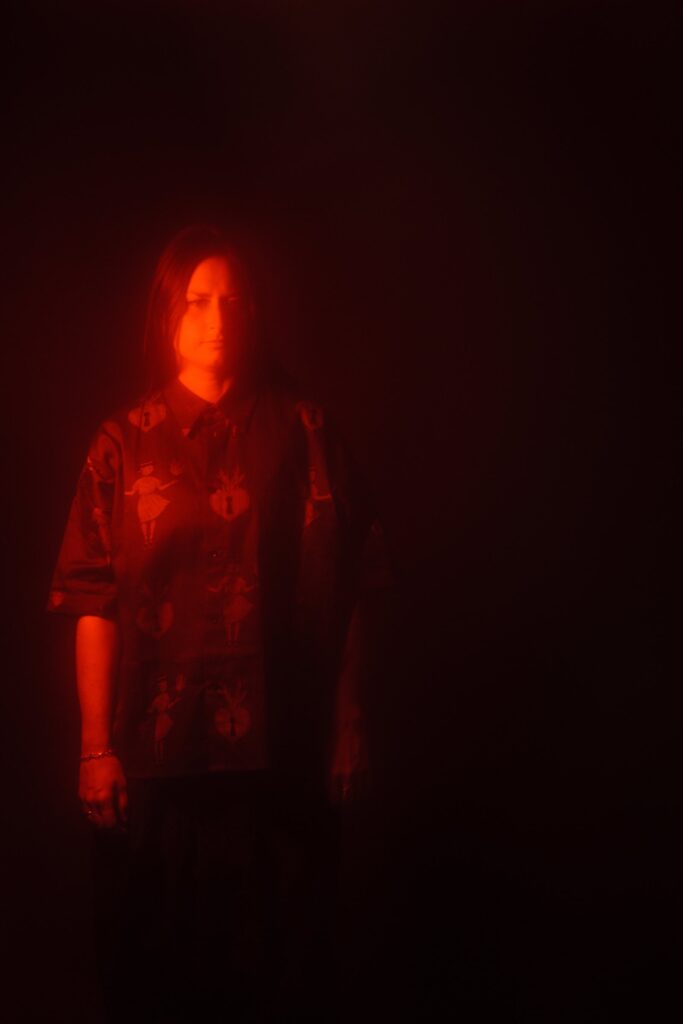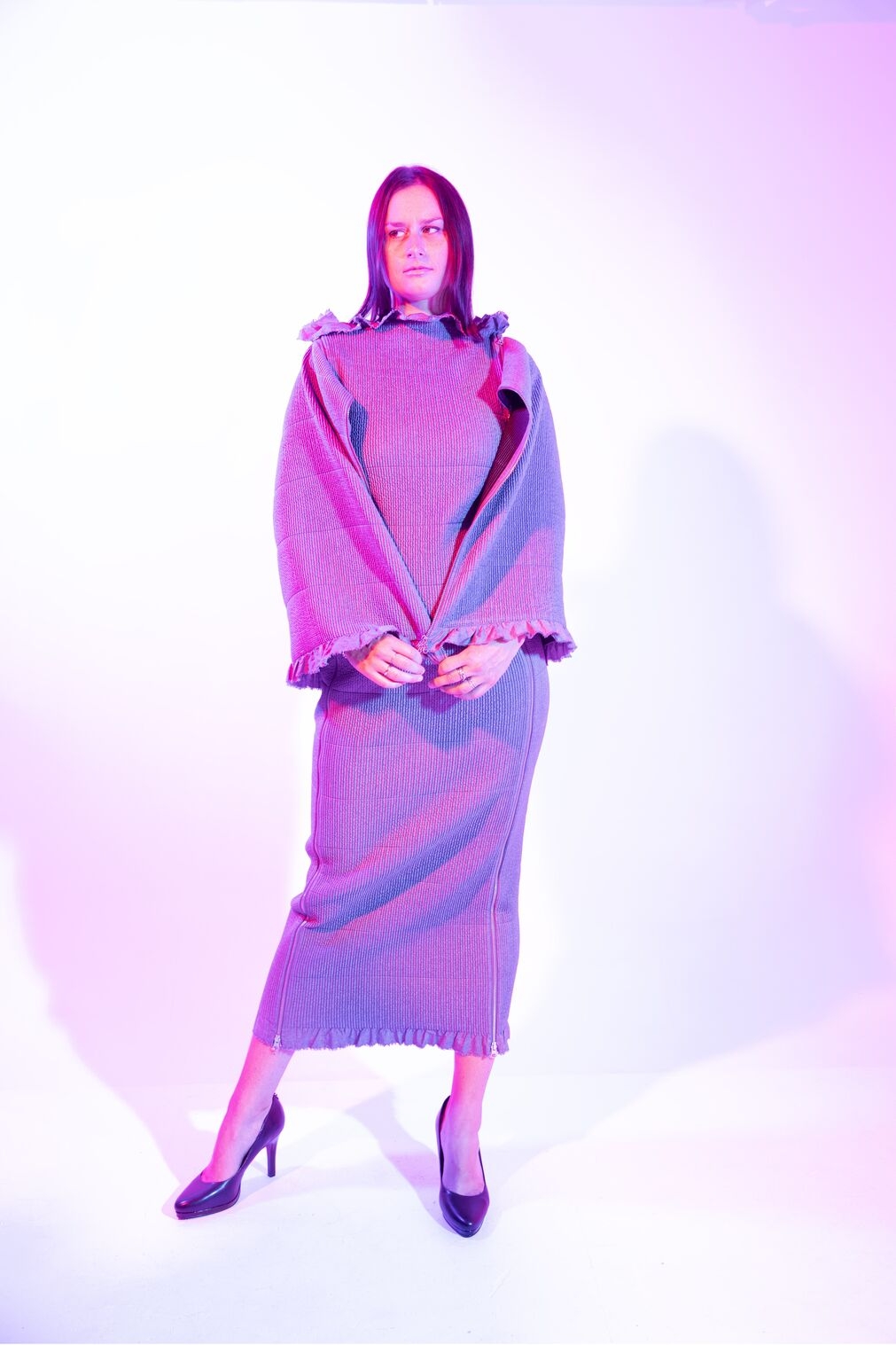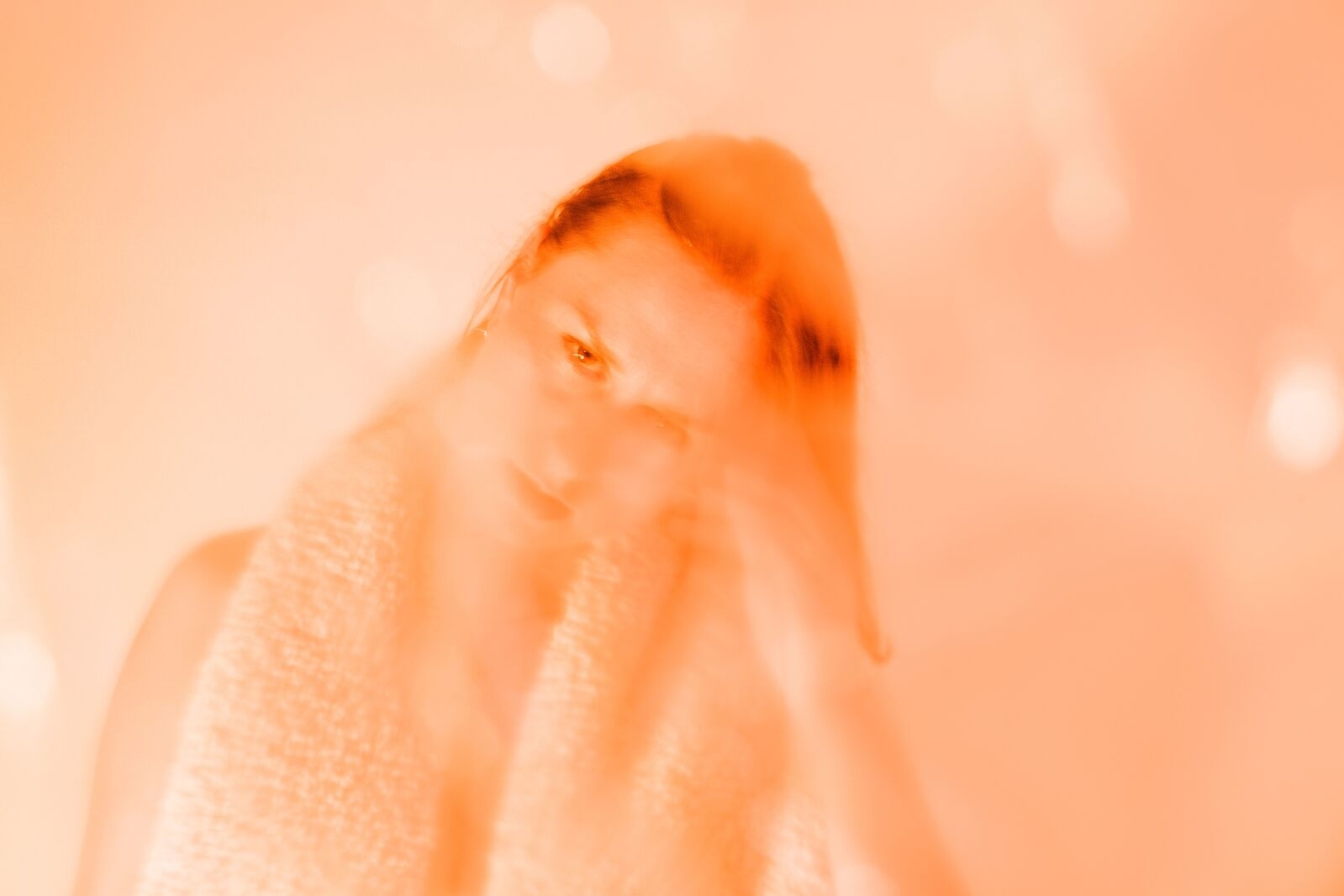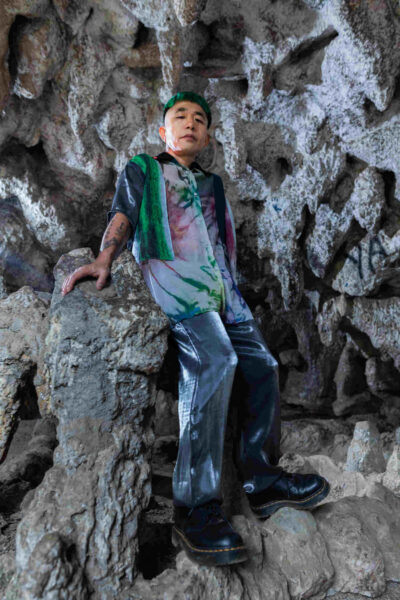Born, raised and based in Kraków, Olivia knows the city (and feels the true heart of it) like no one else. Not only in terms of electronic music, which is close to her heart, but also from her perspective of a cultural activist. She DJs, produces, raises her daughter together with Chino – her partner in both private and artistic life. Together, they have worked on collaborative projects such as Radiation 30376 and Morskie Oko. Check the interview and get to know her better!

Hey, Olivia! It’s a pleasure to meet & interview you. Could you please introduce yourself, both to me and to the readers? What are you currently doing as a music producer, DJ and culture activist?
Cześć 🙂 I’m based in Kraków, Poland. I’m a DJ, I produce music – solo and as a duo with Chino, as a Radiation 30376. I play solo DJ or live as a Radiation 30376. I’m part of the ‘We Are Radar’ collective, we organize parties in different clubs around Poland.
When and how did you enter the world of electronic music? Did you have any guide to the rave / club culture scene and what’s your very first memory from a party?
I started very early when I was a teenager. When I was 16 I already went to some d’n’b and techno parties. I had older friends whom I asked to help me go to the club who knew the security (I was underage). I really loved electronic music, to be clear I wasn’t into drugs at all that time, I almost didn’t drink, I just wanted to go inside and dance and listen to music. In southern Poland at that time there was a very popular techno club Kanty, it was our techno mekka, amazing DJs played there. Sometimes we had to bribe the security and they were allowed to go inside by a fence in the back of the club and they pretended that they don’t see it. But the fence was sooo high that it wasn’t easy.
Anyway, if you ask about a guide to rave culture, do it for music for catharsis with music, not for fame, drugs or money. Then you will feel the true heart of it.
You’re based in Kraków, the city that has had quite a rich impact on the whole electronic music stage. Why have you chosen this particular city as your place to be, what does it bring to you and where can we find you most often? Not only in terms of work, of course!
I was born in Kraków and have lived here the whole time. To be honest, together with Chino we were thinking of moving from Poland, but now – as we have a small daughter – it’s easier to be here when we have grandparents, who help us with taking care of her. Probably, without their help, I wouldn’t be able to play as often as I do.
Kraków is an amazing city, but in my opinion, it has already passed its golden age, now it’s not the same. There are almost no professional clubs with good music (except two places). In most venues, you have to rent it if you want to organize a party. There are some nice bars where you can play, but it is not the same Kraków I remember, where there were few great clubs and so many amazing parties. I mean, I don’t want to be misunderstood. There are still some great DJs and crews, but we desperately need some really good professional clubs.

Your perception of Kraków might be described by two visions, isn’t it? The first is, of course, the local that knows every single corner of the city; the other – is based on the experience as the Unsound festival resident, known as one of the most innovative, open-minded and experimental initiatives. Or maybe in your case the city of residence doesn’t make a difference, as you’re a part of huge, worldwide and globally recognised electronic music culture?
Well, I would rather think about myself as a part of globally recognised electronic music culture, but the truth is that the place where you live and where you come from have a huge influence on your path. In my opinion, it is much easier to achieve bigger music success if you live in a city like London, Berlin or Amsterdam. Just to mention the places in which all the best parties happen, where most of the music press are based. So it’s just easier to get to know the “right” people or to do the networking, which obviously are very important in our scene.
For example, Kraków – I’m sure that without Unsound, I wouldn’t be where I am now. It helped me a lot with my music path, a wider audience had a chance to listen to me and I had a chance to meet and listen to so many amazing people.
Speaking about Polish artists being more successful outside our country: in your opinion, where does it come from? What makes us more appreciated abroad and, in terms of the electronic music industry, what’s the real indicator of success? Number of international bookings, releases in the foreign labels, activity in social media – or maybe something different?
In my opinion, the real indicator of success is the number of international bookings. Most artists in underground electronic music don’t earn money from music production, they earn money when they play gigs. This makes you successful – if you don’t play gigs, but you are an amazing producer, you’re just stressed because you’re not booked, you feel frustrated as you spend hours and days producing tracks, but you have no money – and, in the end, you’re waiting for bookings. So you know: we all do it, because we want to play for people.
Well, I’ve been on the scene for 20 years, so I noticed why some people are successful, and why others are not, even if they are equally talented. In the past, I’d say that sometimes it’s just luck, you just played the right set at the right moment and someone heard it, like some influential promotor. For sure, you have to work hard, be very creative and talented, but I think luck is also important.
But nowadays, the most important is the ability to create your identity on social media. You have to spend all the time in socials, be close to your fans, and show yourself. I hate social media. I do it because this is what you have to do nowadays, but it makes me anxious, stressed and depressed. That’s why I’m not so active, I do the minimum. Today’s music world is not the same anymore as when I started, so you know… Ask younger people what to do to be successful, heheh 😉

Who’s your favourite example of a Polish international star? Not only from the music-related field, but multiple choices (and grounds) are also totally allowed.
Jacek Sienkiewicz – I know that probably the younger generation will not agree with me, but when I was young, he was one of the most talented techno producers in our country and he played regularly abroad. For me, he is a godfather of Polish techno and his label Recognition is one of the best techno labels.
There is a reason why I’ve asked you this question – as it’s you that is a very good example of a successful Polish artist that is well-acclaimed abroad. You’ve just released your new LP, “Sen” in the Hungarian label Dalmata Daniel, preceded by releases for Dutch Pinkman and mixes for Dekmantel or Cxema. How long did it take you to get the international eye’s focus on you? What did your career path look like?
I’ve played for 20 years, crazy, I just realized it is 20 years! So, well, my path is long, my first gig abroad was at Nachtdigital Festival in 2014. Before that, I had already played for 10 years, I played a lot in Poland, but it took a long time for me to be noticed abroad. I was lucky, I played at Unsound Festival in 2013 (it was also my first time) and the booker of Nachtdigital, Steffen Bennemann, heard my set. Later he told me that it was – in his opinion – one of the best sets of the festival, he was impressed and decided to invite me to Nachtdigital. I was completely unknown to the German audience, people after my set came to me and said: “Wow, you were great, but who are you? Where you from?” etc. So later more and more promoters got to know my name and I played more often abroad, but I was slowly building my career. Now I’m also producing music, playing live with Chino, so I got more recognizable by my music as well.
You’re also traveling a lot with your music: you’ve played in venues like Griessmuehle, Drugstore, De School or Radio Radio. So, based on your experience: what’s the factor that matters the most? And what helped you to get more international bookings or releases?
I think, more or less, I answered it in previous questions – but for sure you have to be talented, work hard and be patient. Sometimes it takes a long time to achieve something, but if you love something, you never give up. I never gave up, during so many years I had ups and downs, but I never wanted to stop playing. DJ-ing is my life, music is my life, I can’t imagine my world without it. So, what I can say is: never give up, believe in yourself, be fair to everyone and never allow your ego to blind you.
Regarding releases, I just do music and I’m not shy to show it to some people. I send tracks and wait if someone replies and like it. I also try not to take it too seriously if someone criticizes me. I’m more like: “OK, maybe I can change something”, but if I’m sure about my sound, I believe in it.

Speaking about your collaboration with Unsound: how it all started? I suppose it wasn’t a traditional job interview, and I’m really curious to know your story with this festival and promoter.
First I was booked for the festival in 2013, but I already knew some of the crew. After my DJ appearance, I heard that they were looking for someone to join their team. I talked with Gosia Płysa and started working at Unsound.
Okay, and what role do social media play in modern marketing for artists, DJs, club owners, promoters and cultural activists? No matter how ridiculous it may sound, we’re all in this strange world of posting, sharing, liking and commenting – but we cannot omit the impact it may have on our careers in the industry.
Oh, it has a huge impact. If you feel good in social media, and know how to use it to create your profile, to get attention and likes; then, probably, it will be easier for you to get bookings. Many clubs, festivals, and promoters look at how many likes and fans you have, for them it shows that it will be easier to sell tickets. It is sad because the talent is often in second place. Of course, not all promoters behave like this, but most of them do. On the other hand, it’s a great way of promotion, or to get in contact with many different people and to share music.
Did it happen to you that social media helped you or shortened the way of communication between you and a person / collective / label you wanted to reach? And how to deal with a lack of interest from the other side, even if you post regularly, take care about your content and do not exaggerate, but the inbox is still empty?
To be honest, I don’t think too much about it and don’t spend too much time on social media. As I said before, social media has a bad influence on my emotional mindset. I feel much better if I use it in minimal time. So I don’t expect that my social media profile will be very popular. I’m focused on music and I prefer much more to spend my time making music, with my family or doing some sport.


What’s the most important lesson you’ve learned from working in the electronic music industry? And what would you say to your younger self?
That no matter what happens, never give up and believe in yourself, your music vision, the sound you represent, and find your own niche. Trends are coming and disappearing, and then coming back again, only if you are true to yourself, you are able to survive in the scene. There will always be someone more famous, more popular than you – don’t think too much about it, don’t compare your success to others. Your success is as worth as others, because you made it and it is your work. Concentrate on your work, don’t look at other people’s life and what they show you on social media. Everything looks like a “big” success, and we want to show it to others, but believe me: later, when you talk with artists, all of them have their fears, their frustrations and problems. Try to appreciate all gigs you have, even super small for, let’s say, 10 people, but these 10 people came to listen to you and it is the same worth as playing for 1000 people.
Your nearest plans, priorities, ideas for the future in terms of music and self-development consist of…
I want to do my next record in 2024 and finish some tracks I started to do. Our Radiation record is ready and we want to release it in 2024 in our new label.
… and if you could remix one particular track, which one would you choose and why? (sky is the limit!)
Dj Rolando – Knight of the Jaguar (Underground Resistance). It is a timeless classic.
Thank you very much for the interview and keep doing things your way, Olivia!

Where to find Olivia:
Interview : Agata Omelanska
Clothing: DZHUS
Instagram: @olivia.radar
RA Profile: Olivia
Soundcloud: Olivia
For more music related content – click here







